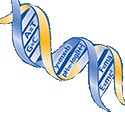SMI: Filling a Desperate Need for Teachers
American business and education leaders examining the nation's educational system found that it isn't living up to the standards of the 21st century global workplace.
That is one of the hard facts the National Center on Education and Economy's New Commission on the Skills of the American Workforce issued in its December report. "We recruit a disproportionate number of our teachers
from among the less able of the high school students who go to college,” said the report.
Through UC's initiative, Cal i fornia Teach, Science Mathematics Initiative (CaTEACHSMI), which is being carried out at the UC system's nine comprehensive campuses, a collaborative effort will be made to fill the state's critical need for highly qualified mathematics and science teachers in the K-12 schools. The aim is to quadruple UC's annual output of mathematics and science teachers from today's 250 to 1,000 by 2010.
UCR's program, which is commonly called SMI, ties together many of the campus' efforts at reaching out to K-12 school students and teachers with
initiatives to identify talented science and mathematics majors interested in becoming school teachers. SMI then seeks to create an educational community that encourages, nurtures and pushes these science and mathematics undergraduate majors to excel and become teachers of quality.
Students involved in UCR's SMI can begin taking two courses with K-12 field experiences as ear ly as their second quarter at UCR. Even though the program is less than a year old, more than 80 students have enrolled for Winter 2007 in the two education courses developed to support SMI goals. Science or mathematics teacher candidates may qualify for financial incentives. Science and mathematics teachers are so needed that they are eligible for student loan forgiveness awards and bonuses for teaching in underperforming schools. Through SMI, students may travel a streamlined
pathway to an intern credential that can result in a job at a school district right after graduation. And SMI offers students a resource center at its offices at 1104 Pierce Hall.
Biology Professor Bradley Hyman, who serves as UCR's SMI faculty director and Staff Director Leslie Bushong have devoted their first year of operation to developing the contacts across the campus from engineering to physics, chemistry, mathematics, geology, environmental sciences, botany
and biology to the Graduate School of Education and the ALPHA Center - the campus' K-12 schools outreach hub.
In fall 2006 alone, Hyman and Bushong led numerous workshops for more than 150 students and have fielded more than 200 inquiries from undergraduates.
They currently count 24 faculty members from the College of Natural and Agriculture Sciences, the Bourns College of Engineering and Graduate School of Education among their partners.
Hyman and Bushong have also hit the orientations such as Bear Facts and the student orientations at CNAS. They also manage a listserv with information about seminars, deadlines, services and resources for students. The listservcurrently has more than 150 members, according to Hyman.
The response has been encouraging, according to Hyman.
"There's a real spirit of cooperation within the departments in the sciences and engineering, and the Graduate School of Education, to work with us," he said. "There's been a universal realization that there's a problem and that we need to do something about it."
Hyman and Bushong have also developed a comprehensive SMI program Web site at www.smi.ucr.edu.
For more information about how you or your department can partner with SMI, contact Bradley Hyman or Leslie Bushong at smi@ucr.edu.
View the original article via Web Archive
